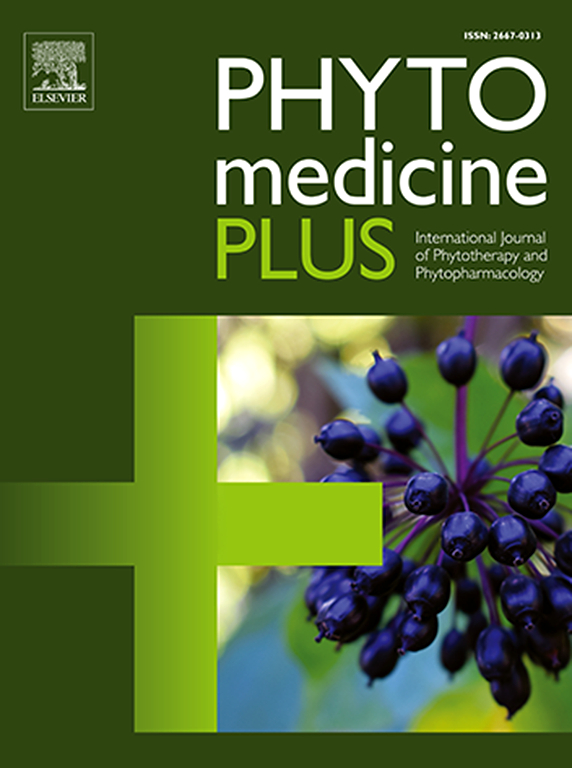Cytotoxic and anti-migratory effects of Ocimum gratissimum L. essential oil on prostate and cervical cancer cells in vitro
Q3 Pharmacology, Toxicology and Pharmaceutics
引用次数: 0
Abstract
Essential oil of Ocimum gratissimum L. (O. gratissimum) from Burkina Faso was evaluated for its antioxidant activity and for the first time, its cytotoxic properties, and effects on the cell cycle of LNCaP and HeLa cells, respectively derived from prostate and cervix tumors. Gas chromatography-flame ionization detection and gas chromatography-mass spectrometry identified 53 compounds, among them thymol (38.10 %) as the major component, which could explain the antiradical properties and cytotoxic activity of the essential oil on LNCaP and HeLa cells. The essential oil also exhibited antimigratory activity on the LNCaP cells with the reduction of their proliferation by inducing cell cycle arrest in the G0/G1 phase. While these results need to be confirmed in preclinical models, they support the potential use of cell cycle arrest of O. gratissimum essential oil as an antitumor agent, particularly in prostate cancer.
芫花精油对前列腺癌和宫颈癌细胞的体外细胞毒和抗迁移作用
研究了产自布基纳法索的Ocimum gratissimum L. (O. gratissimum)精油的抗氧化活性,并首次对其细胞毒特性和对前列腺肿瘤LNCaP细胞和宫颈癌肿瘤HeLa细胞周期的影响进行了评价。气相色谱-火焰电离检测和气相色谱-质谱分析鉴定出53种化合物,其中百里酚(38.10%)为主要成分,可以解释精油对LNCaP和HeLa细胞的抗自由基和细胞毒活性。精油对LNCaP细胞也表现出抗迁移活性,通过诱导细胞周期阻滞在G0/G1期,从而抑制LNCaP细胞的增殖。虽然这些结果需要在临床前模型中得到证实,但它们支持了黄草精油作为抗肿瘤药物的细胞周期阻滞的潜在用途,特别是在前列腺癌中。
本文章由计算机程序翻译,如有差异,请以英文原文为准。
求助全文
约1分钟内获得全文
求助全文
来源期刊

Phytomedicine Plus
Medicine-Complementary and Alternative Medicine
CiteScore
3.70
自引率
0.00%
发文量
178
审稿时长
81 days
期刊介绍:
 求助内容:
求助内容: 应助结果提醒方式:
应助结果提醒方式:


